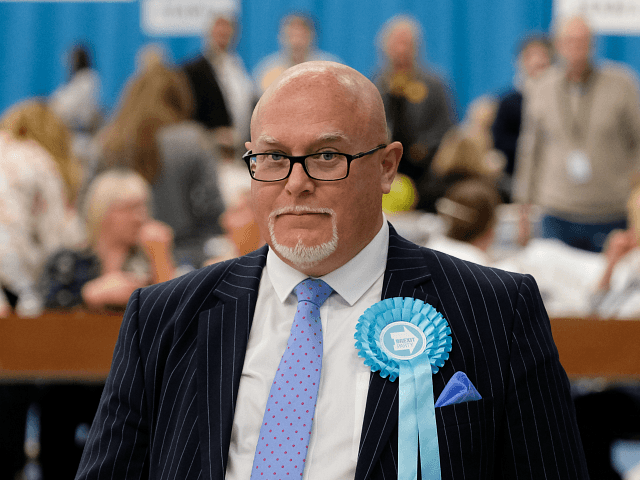Brexit Party MEP for North East England Brian Monteith criticised the federalist dreams of European parliamentarians who wish to “remove the nation-state”.
Speaking on BBC’s Newsnight on Tuesday, Mr Monteith explained that he joined his Brexit Party colleagues in turning his back on the European Union’s ‘national’ anthem earlier that day to voice his rejection of a “European Superstate”.
“We were sitting down at the point we were told to stand up for the national anthem. Well, this is not a national anthem. This is a lovely piece of music by Beethoven, that has been purloined to try and replicate an anthem for the European Superstate that the federalists wish to build.
“So we did stand up but we could not respect this so we chose to have a dignified, silent protest by turning our backs on the drive towards federalism.”
“That parliament is full of people who wish to actually remove the nation-state from the whole of Europe. They want to build a federal United States of Europe and the army, the flag, and the national anthem are all part of that,” the MEP added.
New EU President Nominations a ‘Franco-German Stitch-up’, Says Farage https://t.co/EhSRDdaT58
— Breitbart London (@BreitbartLondon) July 3, 2019
The pro-EU MEPs are not alone in longing for a European Superstate. In late 2017, former president of the European Parliament and German politician Martin Schulz called for the establishment of a “United States of Europe” by 2025, with outgoing European Commission President Jean-Claude Juncker pushing for a “fully-fledged European Defence Union” within the same timescale.
A proto-EU army was signed into Brussels law in November 2017, when the vast majority of member states backed the Permanent Structured Cooperation process, or PESCO. The following year both France’s Emmanuel Macron and German Chancellor Angela Merkel called for a “real, true European army” to succeed it, aspirations which were celebrated by senior Eurocrats.
Germany and France have already initiated plans to merge their two countries, including signing a twinning treaty in January which proposed closer cooperation on defence, foreign and economic policy, and business regulations. While in March, French MPs supported the formation of a common assembly that would see France and Germany represented in a single parliament. Macron is also pushing for a common EU budget and Merkel demands a bloc-wide migration and asylum system.
‘EU Is Not a Nation’: Rees-Mogg, Farage Defend Turning Backs on Euro Anthem https://t.co/lphALV7tm5
— Breitbart London (@BreitbartLondon) July 2, 2019

COMMENTS
Please let us know if you're having issues with commenting.